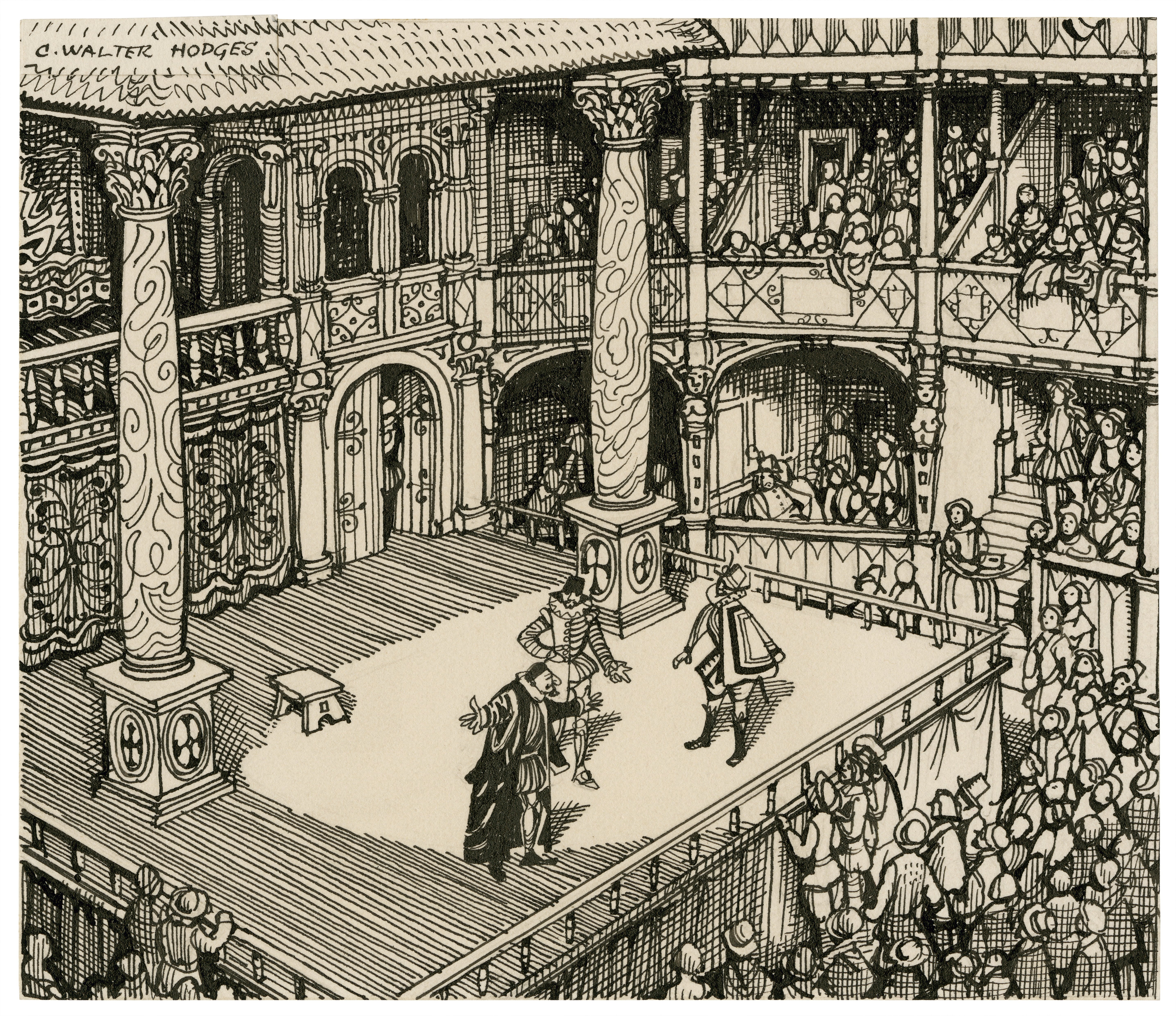The slap heard across Liverpool
Last week I went on a school trip! An Inspector Calls at the Liverpool Empire (the one directed by Steven Daldry where the house… well, something happens to the house - I won’t spoil it for you if you haven’t seen it. (Also, you should really have seen it at least once by now, it’s been 30 years!)
 |
| Marquee for An Inspector Calls Photograph by Colin Smith © licensed under Creative Commons |
An Inspector Calls is a GCSE set text, which means: a) even though its a 1940s drawing room drama, you can sell out the Liverpool Empire, and b) your average audience age is about 15.
If you don’t know the play, there is a part where Miss Burling, newly engaged, finds out her fiancé has been keeping a mistress (SPOILER ALERT - But you really should have read it by now, it’s been out for 78 years!). An argument ensues, topped off with the most almighty crack as she slaps him across the face. It is a Real-Housewives-cum-Kardashians moment anachronistically thrust into a 1940s stage play. The young audience, apparently more used to watching bar-brawls than theatre, approved very much of the love-rat's comeuppance: whooping, clapping and whistling - if JB Priestly ever wished he would write a Jerry Springer moment, his wish has been granted.
I must confess, the children I was sitting with from Rydal Penrhos were impeccably behaved. The two in front of me even joined in with the customary roil of teachers' shushing, and it wasn’t long before the youthful crowd’s enthusiastic outburst was tempered.
Audience expectations
When it comes to putting up with teenagers at the theatre, 15 years as a secondary school teacher have given me a thicker skin than most. It is easy to forget, that the before the great and the good inculcated our contemporary culture of respectful silence and earnest consideration of character development, the theatre used to be a palace of raucous delight, where audience members were as likely to shower the actors with food as applause.
 |
| Illustration of Elizabethan Theatre, w. thanks to C. Walter Hodges, CC BY 4.0 via Wikimedia Commons |
It is a learning point oft remembered that Elizabethan and Jacobean theatres were built in a similar style to bear baiting pits. Blood sports were incredibly popular in our glorious iambic past. Audiences were just as likely to buy a ticket for a cock fight or a bear knuckle boxing match as they were to attend a theatrical performance. To an OG Shakespeare season ticket holder, the jeering, drinking, and jostling through the throng were just as much part of a great play as they were a good bull fight. Theatre in the round puts the actors in a vulnerable position: they are enveloped by the audience; they don't just perform for us, we commune with them. Indeed, shortly after Ben Johnson debuted Bartholemew Fair at the Hope Theatre, the venue changed its name back to the Bear Garden.
In the wonderful page-turner The Pantomime life of Joey Grimaldi by Andrew McConnell Stott we are treated to eye witness accounts of some of the earliest shows that we would recognise today as panto. Producers plying their customers with cheap booze, audience members jumping over the circle balcony and up onto the stage, followed inevitably by police interventions. Theatre was vital, visceral, communal.
 |
| Poster advertising panto pioneer Joey Grimaldi |
We don't even have to go back as far as Joey Grimaldi to find traces of a more vivacious theatre culture. For only sixpence for a stalls ticket, audiences packed out music hall and variety shows even within living memory - a form of entertainment with "a reputation amongst the middle classes for their vulgarity and distasteful performances." Doesn't it sound delightful?
Pantomime is the honest descendent of these traditional performance cultures. Of course the audience want to shout out and warn the hero "it's behind you!", obviously we want to boo and hiss the evil Abanazar, naturally the school kids go wild when the heroine slaps her philandering fiancé. It is the expecectation of wallowing, detached in moribund silence that is peculiar.
The REAL Housewives of JB Pristley
Back to An Inspector Calls for a moment. As the play unfolds, there are further stage combat sequences. The young Burling boy manhandles his father and smashes a whiskey bottle, but special effect break-away glass notwithstanding, the children were less impressed. By that point, the character in question has already been unmasked as a rapist, and though he has a good go at repenting, it’s hard to root for him completely. The various revelations garnered fugues of “ooh”s and “aah”s, but nothing topped the response to the slap… It turns out, lamping a love-rat is a veritable crowd pleaser.
The cheater is wicked. He deserves to be punished. At its heart, pantomime is built around Manichean narrative structure. Fairy Bow Bells is good, Queen Rat is evil. We want Jack to save the day, we are delighted when Fleshcreep is crushed by the toppling beanstalk.
And why not?
Doing something better
Unfortunately (to my mind) there exists in certain circles a propensity to water-down and bowdlerise the narrative on the pretence of upholding contemporary mores: 'We shouldn't glorify violence', 'we should be teaching our kids to forgive and make-up'. Nonsense!
How many times must we endure Fairy Feeble telling us: "I know, if I wave my magic wand Carabosse will become good again?" What a yawnfest! Drama requires climax; catharsis. Not mealy mouthed moralising from magical misfits. When we put on a panto we proffer a promise: trust us, come with us and we'll take you on a fantastical journey through trials and tribulations, love, laughter, jeopardy and hi-jinx. At our behest the children harry the evil doer, they sit on the edge of their seats when Red Riding Hood is chased by the wolf, their hearts are torn in two when Cinderella rips up her invitation to the ball. For what? So in the last 5 minutes we can say "Oh well, it didn't matter anyway. There are no consequences. Pick up a programme on your way out!" What's the lesson the kids are supposed to take away from that? They should try harder at magic? We might as well just project the words "And then they all realised it was only a dream" and be done with it.
We all know what our audiences want. When Robin Hood finally bests The Sheriff in act 2 scene 6, he raises his sword high in the air and cries out "what shall I do with him, boys and girls?" And what do they shout back: "Kill him!" Like clockwork, every time.
 |
| The wonderfully wicked Sheriff played by Big Tiny legend, Larry Stubbings Robin Hood, Huddersfield (2021) ⓒ The Big Tiny |
The spuriously qualified yet somehow still-vaunted father of fairy stories, Bruno Bettelheim (don't get me started - my rebuttal will need it's own blog post) argues that
"the appreciation of mercy… baffles the child.”
- Bettelheim, B. The Uses of Enchantment (1976) p144
It stands to reason. In his review of Maeterlinck's The Blue Bird, the late, great GK Chesterton tells us why:
"for children are innocent and love justice, while most of us are wicked and prefer mercy."
The wickeder the villain, the more delicious is his downfall. Last year I incorporated a daring and novel twist into my script of Aladdin. From the very first line of the prologue, Abanazar is promised by destiny that he shall rule the world in the end. His fate is never in doubt (of course not... he has an omnipotent genie - duh!). In the final scene, when the Twankeys, the Empress, policemen and Jasmine are all cowering before him, he unabashadly relishes his triumph:
Abanazar: ... continues
And that’s the real moral, kiddos - nothing matters, only power
The strong will take their fill, the weak must step aside and cower
Teamwork doesn’t makes the dreamwork,
True love never finds a way
Good things come to those who seize them
Cheaters win and crime does pay
Hahahaha. Hahahaha.
“But the goodies always win in the end. It’s a pantomime.”
Newsflash: This is the end. The last page, the last speech, the last seconds. I’m afraid you’re all out of time.
Thank you for coming and cheering your side
If you want to know what happened next, they all died.
You did your best booing, but my victory was built in
Try a bit harder next year’s Rumplestiltskin.
I wish you all the most unhappy Christmases, and a horrible New year’s day
Bog of home you bunch of losers. And that’s the last line of the play.
- Aladdin by Ben Richards © 2022, The Big Tiny
And true to his destiny, as the last line of the play is spoken, Abanazar clicks his fingers and... BLACKOUT.
You could hear a pin drop. Every night, it landed.
Here they sat, hundreds of children and adults alike, so invested, so horrified, so caught up in the tale we wove, that they gasped as one body.
I shan't tell you exactly how Aladdin managed to get himself out of that: but enquiring minds can read the review here.
The point is, IT MATTERED.
Did we forgive him? Not on your nellie! Did he magically turn good in the end? Does any villain?
The fairy tales upon which pantomime is based started off as cautionary tales. Don't accept sweets from the wicked witch, steer clear from the big bad wolf, if there's a bear living somewhere don't let yourself in. Where are the cautionary tales for modern day threats? I've never been chased by a wolf, but I've met a few conniving narcissists who believe it's their destiny to rule the world.
So what did Aladdin (and everyone else) learn in the end? Simples - not everyone should be trusted, kiddos. Some people are only in it for themselves, so keep your wits about you!
Or, as Abanazar himself summed up during the dum-de-dums:
"Beware those who use their power to coerce,
They make themselves feel better by making others feel worse"
- Ibid
Give the people what they want! Let them enjoy Miss Burling's revenge! To all that would hear it, this is my rallying cry "Bring back the villain. Make panto better."
P.S. I can't wait for you to see what I've been doing with Rumpelstilskin.
 |
| The supremely talented David Herzog as a triumphant Abanazar, Market Drayton (2022) Photo by Howard Barlow © The Big Tiny |




No comments:
Post a Comment